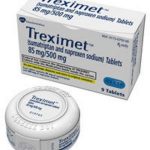
Contents
vitamin E
Vitamin E is an essential micronutrient. It refers to a group of fat-soluble compounds called tocopherols and tocotrienols, with alpha-tocopherol being the most bioactive form.
Vitamin E is not naturally synthesized in the body and must be obtained from the diet. Oral formulations of vitamin E are available over the counter as dietary supplements.
Vitamin E has several important functions in the body, including:
- Neutralizing free radicals, unstable molecules that damage tissue and contribute to many diseases.
- Protecting cellular membranes from free radical damage.
- Inhibiting platelet aggregation and reducing clot formation.
- Protecting red blood cells from destruction.
- Boosting the immune system.
- Preventing oxidation of vitamin A and C.
Adequate intake of fat is necessary for the absorption of vitamin E. Most people can obtain sufficient vitamin E from their diet without supplements. Food sources of vitamin E include edible vegetable oils, nuts and seeds, leafy green vegetables, and fruits.
Vitamin E deficiency is rare and is usually associated with conditions that affect fat absorption and metabolism. Limited evidence supports the use of vitamin E supplementation for specific conditions, such as vitamin E deficiency. Other uses of vitamin E are still under investigation, but scientific evidence is insufficient to support their effectiveness.
Warnings
- Avoid vitamin E supplementation if you are hypersensitive to it or any of its components.
- High-dose vitamin E supplementation can potentially induce vitamin K deficiency and increase bleeding risks. Use caution if you have bleeding disorders, bleeding peptic ulcers, or vitamin K deficiency.
- Vitamin E does not significantly affect bleeding time or warfarin effects at recommended doses. However, high doses may require warfarin adjustment.
- Discontinue high-dose vitamin E supplementation one month before surgery and resume after recovery.
- Some studies suggest that high doses of vitamin E may increase all-cause mortality, but the evidence is inconclusive and based on small studies.
Side Effects
Common side effects of vitamin E include:
- Diarrhea
- Gas (flatulence)
- Nausea
- Headache
- Fatigue
- Blurred vision
- Increase in serum creatinine levels
- Increased bleeding risk and hemorrhagic stroke
- Intestinal inflammatory disease in low birth weight infants
- Possible vitamin K deficiency
- May suppress the action of other antioxidants
Contact your doctor immediately if you experience any of the following symptoms or serious side effects:
- Serious heart symptoms, such as fast or pounding heartbeats, fluttering in the chest, shortness of breath, and sudden dizziness
- Severe headache, confusion, slurred speech, severe weakness, vomiting, loss of coordination, feeling unsteady
- Severe nervous system reaction with very stiff muscles, high fever, sweating, confusion, fast or irregular heartbeats, tremors, and feeling like you might pass out
- Serious eye symptoms, such as blurred vision, tunnel vision, eye pain or swelling, or seeing halos around lights
This is not a complete list of side effects or adverse reactions. Contact your doctor for medical advice or report side effects to the FDA at 1-800-FDA-1088.
QUESTION
What are the dosages of vitamin E?
Capsule
- 200 units
- 400 units
- 600 units
- 1000 units
Liquid
Solution
Adult: Recommended Daily Allowance (RDA)
- 15 mg orally once a day; not to exceed 1000 mg/day
Pregnant Females
- Under 18 years: 15 mg orally once a day; not to exceed 800 mg/day
- Over 18 years: 15 mg orally once a day; not to exceed 1000 mg/day
Lactating Females
- Under 18 years: 19 mg orally once a day; not to exceed 800 mg/day
- Over 18 years: 19 mg/day orally once a day; not to exceed 1000 mg/day
Vitamin E Deficiency
- 60-75 units orally once a day
- 400 units orally twice or four times daily
Pediatric:
Recommended Daily Allowance (RDA)
- Children 1-3 years: 6 mg orally once a day; not to exceed 200 mg/day
- Children 3-8 years: 7 mg orally once a day; not to exceed 300 mg/day
- Children 8-13 years: 11 mg orally once a day; not to exceed 600 mg/day
- Children 13-18 years: 6 mg orally once a day; not to exceed 800 mg/day
Cystic Fibrosis Supplementation (Off-label)
- Children 1-12 months: 40-50 units/day
- Children 1-3 years: 80-150 units/day
- Children 4-8 years: 100-200 units/day
- Children over 8 years: 200-400 units/day
Administration
- Swallow capsules whole, do not crush or chew
Overdose
- Vitamin E overdose is unlikely with dietary intake but can occur with excessive supplemental use.
- Vitamin E overdose can increase the risk of bleeding, particularly if you are already on anticoagulant or antiplatelet therapy. Symptoms may include muscle weakness, fatigue, nausea, and diarrhea.
- Treatment involves discontinuing vitamin E supplementation. Bleeding may be treated with vitamin K if necessary.
- If you suspect a vitamin E overdose, discontinue use and seek medical help or contact Poison Control if symptoms persist or if you notice any unexplained, unusual, or excessive bleeding.
Drug Interactions
Inform your doctor of all medications you are currently taking to check for possible interactions. Do not start, stop, or change the dosage of any medication without your doctor’s recommendation.
- Vitamin E has no known severe or serious interactions with other drugs.
- Moderate interactions may occur with drugs such as betrixaban, ferric maltol, ferrous sulfate, iron sucrose, polysaccharide iron, selumetinib, vortioxetine, warfarin, and zanubrutinib.
This list does not cover all possible interactions or adverse effects. For more information, consult the RxList Drug Interaction Checker or consult your healthcare provider.
Always inform your doctor, pharmacist, or healthcare provider about all prescription and over-the-counter medications you are using, along with their dosages. Keep a list of this information. If you have any questions about the medication, consult your doctor or healthcare provider.
Pregnancy and Breastfeeding
- Vitamin E is beneficial for both mother and fetus in recommended daily amounts during pregnancy. Supplementary vitamin E is generally not necessary unless the mother is deficient.
- Vitamin E is present in breast milk and safe in recommended amounts for nursing mothers.
- If you are pregnant or breastfeeding, consult your healthcare provider before taking any supplements, including vitamin E.
Final Thoughts
- The best way to obtain vitamin E is through dietary intake.
- Do not exceed the recommended daily dose of OTC vitamin E supplements.
- Remember that vitamin E is considered a dietary supplement and is not extensively regulated by the FDA.
- Keep out of reach of children.
In conclusion, vitamin E is an essential micronutrient. Oral formulations of vitamin E are available as dietary supplements. It functions as an antioxidant and has various benefits. Common side effects include gastrointestinal symptoms and increased bleeding risk. It is important to be aware of potential drug interactions and to discuss any concerns with your healthcare provider.


